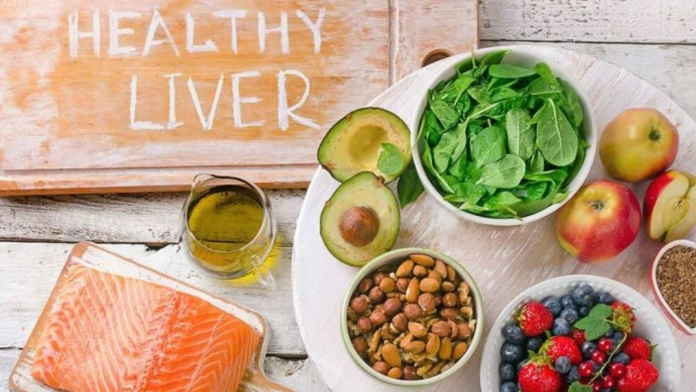The liver is a vital organ that plays a crucial role in keeping our bodies healthy. It is responsible for breaking down toxins, producing bile to aid digestion, storing nutrients, and regulating blood sugar levels. Therefore, keeping your liver healthy is important for overall well-being. In this article, we will discuss some food habits that can help you maintain a healthy liver:
- Eat a balanced diet:
Eating a balanced diet is essential for good health. A balanced diet includes plenty of fruits, vegetables, whole grains, and lean proteins. These foods contain essential nutrients that support liver health, such as fiber, vitamins, minerals, and antioxidants.
Fiber is particularly important for liver health, as it helps to reduce the amount of fat in the liver. High levels of fat in the liver can lead to non-alcoholic fatty liver disease (NAFLD), which can progress to liver damage and even liver failure.
- Limit alcohol consumption:
Alcohol is a major contributor to liver damage. Regular and excessive consumption of alcohol can cause inflammation and scarring in the liver, leading to liver disease. It is therefore important to limit your alcohol consumption to keep your liver healthy.
The recommended alcohol intake is up to one drink per day for women and up to two drinks per day for men. However, it is best to avoid alcohol altogether if you have a history of liver disease or are at risk of developing liver problems.
- Avoid processed foods:
Processed foods are often high in fat, sugar, and salt, which can be harmful to your liver health. These foods can contribute to obesity, diabetes, and other health problems that can increase the risk of liver disease.
Instead, choose whole foods that are minimally processed, such as fruits, vegetables, whole grains, and lean proteins. These foods are nutrient-dense and support liver health.
- Drink plenty of water:
Staying hydrated is important for liver health. Drinking plenty of water helps to flush toxins out of the liver and keeps the liver functioning properly.
Experts recommend drinking at least 8 glasses of water per day. However, the amount of water you need may vary depending on your age, weight, and activity level.
- Limit salt intake:
Excessive salt intake can cause fluid retention, which can lead to swelling in the liver and other organs. This can make it difficult for the liver to function properly, leading to liver damage over time.
To limit your salt intake, avoid processed foods, which are often high in salt. Instead, use herbs and spices to add flavor to your meals.
- Eat foods rich in antioxidants:
Antioxidants are important for liver health, as they help to reduce inflammation and protect liver cells from damage. Foods that are rich in antioxidants include berries, dark chocolate, nuts, and green leafy vegetables.
Including these foods in your diet can help to support liver health and reduce the risk of liver disease.
- Limit sugar intake:
Excessive sugar intake can contribute to the development of non-alcoholic fatty liver disease (NAFLD), which can progress to liver damage and liver failure.
To limit your sugar intake, avoid sugary drinks and processed foods that are high in sugar. Instead, choose whole foods that are naturally sweet, such as fruits.
- Choose healthy fats:
Not all fats are created equal. Some fats, such as trans fats and saturated fats, can be harmful to liver health. These fats can contribute to the development of NAFLD and other health problems.
On the other hand, healthy fats, such as monounsaturated and polyunsaturated fats, can support liver health. These fats are found in foods such as nuts, seeds, avocados, and fatty fish.
- Get enough protein:
Protein is important for liver health, as it supports the production of liver enzymes and helps to repair liver cells. However, it is important to choose lean sources of protein, such as fish, chicken, and legumes, as high levels of animal protein can contribute to liver damage.
It is also important to avoid processed meats, which are often high in fat and salt. Instead, choose whole foods that are high in protein, such as beans, lentils, and quinoa.
- Limit caffeine intake:
Caffeine is metabolized in the liver, and excessive caffeine intake can contribute to liver damage over time. It is therefore important to limit your caffeine intake to support liver health.
Experts recommend consuming no more than 400 mg of caffeine per day. This is equivalent to about 4 cups of coffee.
Maintaining a healthy liver is essential for overall health and wellbeing. While there are many factors that can impact liver health, incorporating these food habits can help support a healthy liver.
Additionally, it is always advisable to consult with a healthcare professional for individualized advice and to monitor liver function. By taking proactive steps to maintain liver health, individuals can support optimal health and wellbeing for years to come.





